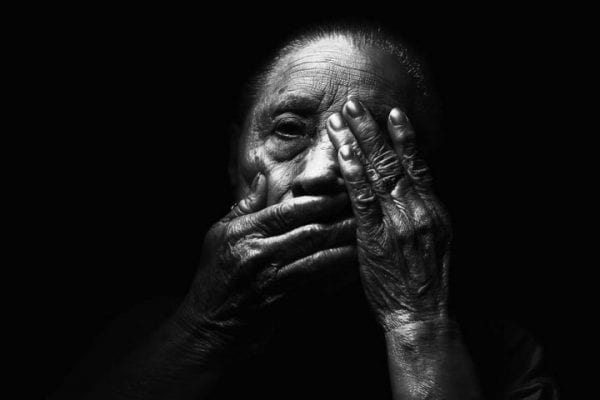Introduction
Intersectionality on the society is a major problem that should be acknowledge by everyone so that the number of discrimination could decrease. Gender and sexuality issues are recognise as a sociological study which is first discussed on Simone de Beauvoir in his book entitled The second sex which mainly talks about “one is not born a woman: one becomes one” (Beauvoir and Parshley, 1989). Her idea was about the difference between sex which is based on biological means and gender which is formed by the social forces that act upon one to be feminine or masculine. Beauvoir’s explanations on gender has made her the “mother of the modern women’s movement” where freedom of choice that should also be conducted by women.
Michel Foucault, has tackled the topic about gender and sexuality as a social phenomenon in the year 1976 in his book The History of Sexuality. His main idea in this book is based on his central theory of the way that power in the society is exerted by the important social norms, and in particular that not only our gender but our sexuality is also shaped by the surrounding culture (Foucault 1990). Just as Beauvoir had brought the issue of gender into the social sphere, Foucault clearly explained that sexual orientation should be included and indeed the whole sexual behaviour. This “free love” generation where Foucault grew up had triggered the sexual liberation which brought the women’s liberal movement.
Understanding Post-Modern Feminism
Judith Butler, a US scholar, who took these kind of ideas further has accepted Beauvoir’s thoughts that gender is a social construction. Butler felt that traditional feminism tends to ignore the bigger implications of this notion, and merely reinforces male and female stereotypes. Butler’s explanation about gender is not as simple as masculinity and femininity, nor simple as homosexual and heterosexual (Butler, 1990). Gender is neither polarised in this way, nor as fixed and still as we have come to believe, but gender is fluid which cover a whole spectrum of gender identities.
Butler’s idea about how gender is fluid and constructed by language has classified her perspective into the post-modern feminism. Her faced some considerable criticism by feminist thinkers such as Martha Nussbaum. The divergent interpretation are not considered in butler’s work which she also mentioned that the law and the culture of India is different with the western laws especially the US (Nussbaum, 2000). Even that butler has more followers than critics, it is still important to not generalise on the western cultures.
Intersectionality as the Base of Black Feminism
Post-modern feminism somehow has not spoke the voice of the marginalised society nor the oppressed society which Kimberlé Williams Crenshaw explains further in her ideas about Intersectionality. Crenshaw’s explanation on intersectionality based on the multiple intersection of the oppressed group. Intersectionality uses traffic as an analogy to show how discrimination can have multiple causes that are hard to determine. Discrimination, like traffic, may flow in one direction or another and an accident happens when an intersection is filled with cars travelling from each directions (TED, 2016). If a black woman is harmed because she is at the intersection, this is caused by her sex and race and if a blind homeless black woman is harmed this is caused by disability, social class, sex, and race.
Bell hooks then took this idea further in her book entitled The Will to Change which she explains that the usage of the phrase ‘imperialist white-supremacist capitalist patriarchy’ to portray the intertwining political systems that are the base of most nation’s politics (Hooks, 2004). The phrase determines the hierarchy of a nation that generate discrimination laws to the minority and intersectionality. This white supremacy as the stigma of lighter skinned people has the higher hierarchy than the darker skins. Racial prejudice is still conspicuous in beliefs that a person is violent because of the racial background which is a form of stereotyping races and acts.
Capitalism is Exploiting the Black
Racial hierarchy has created a form of capitalism which basically consists of those who own the means of production and labour control has the privilege over the workers. Hooks agrees with Carmen Vázquez’s idea about how american capitalists are obsessed of being individualistic which means that anything goes so long as it gets what do the capitalists want. Capitalism values money more than people which means the wealthy people are more seen than the poor (Ohio State University, n.d.). According to hooks, the attitudes that are encased in white supremacy and capitalism continue to cause problems. Imperialism and colonialism also becoming a relevant theme because based on its history, non-white peoples and their available resources have been plundered and exploited by white supremacist capitalists to pursuit wealth.
Hooks noted that women in the poor and lower class society, especially black women, would not define women’s liberation as equal as black men in the fact that they are also exploited and oppressed which also may lack of social, political, and economic power and participation. While these condition happen, women are still aware that patriarchy will give the men privileges which will be an exaggerated expressions of male chauvinism in their own group which emanate from a sense of powerlessness compared to other male groups particularly rich white men.
This continuous effect of the imperialist, white-supremacist, capitalist patriarchy is a complex intersectionality of privileges that should be examined in its whole form of intersectionality that impacts women to understand how to improve the lives of the women. Black women have been suspicious of the feminist movement since the inception their own personal body. Bell hooks also assume that black women realise that feminism is a movement that encourage the equality of gender and sexes which means equality towards men which they think it would improve the social standing of rich white women. These privileged women according to Hooks, they have not been concerned to yell for attention to race and class privilege because of the personal benefits that they receive from being above the lower class of exploited, subordinate women that do the dirty work where those rich white women refusing to do.
Privilege and Politics
Men and women with multiple social privileges (rich, white, heterosexual) may see the condition of intersectionality as a demonstrating just one form of oppression rather than the multiple intersectionality that a person has. This is argued in Cynthia Enloe’s book Bananas, Beaches, and Bases where being poor will impact on how less they are conscious of and less in need of their rights unless they got tutored and led by the more privilege men and women (Enloe, 2014). This also may be due to in part to be ignorance as Hooks explains that in her town she grew up, black people often travelled to the white town to find work, but white people did not even bother to go to the black district which conclude that white people doesn’t know how black people suffer (Hooks, 2015).
In addition, Hooks examined that some women tend to despise identification with any political movement, particularly one is that considered radical or in other words, they not wish to be associated with any ‘women’s rights’ movement of any form.
The fear of joining movements that challenges male rights and behaviours have been indoctrinated into them by the early influence of patriarchy. Once we see that it is the system of patriarchy is the main problem rather than men, that point could begin to achieve answers about the condition. Hooks argued that feminist must raise attention to the diversity of women’s social and political phenomenon, and recognise that race and class oppression are also feminist issues. This will bring feminism to not solely target a group of women with privilege over men with privilege.
Conclusion
Post-modern feminism that tends to focus on how gender construction is complex based on language and signs has somehow failed to bring the minor groups who are more discriminated in multiple aspects or in the intersectionality group. Black feminism with its intersectionality as the branch of post-colonial feminism has succeed on eradicating the barriers of gender, race, disability, social class, and many other aspects by encompassing the aspects as a subject of feminism. This had brought a conclusion that feminism is a political movement, not a “romantic notion of a personal freedom”.
Bibliography
Beauvoir, S.de & Parshley, H.M., 1989. The second sex, South Yarra, Vic.: Louis Braille Productions.
Butler, J, 1990. Gender Trouble. NY: Routledge.
Enloe, C.H., 2014. Bananas, beaches and bases: making feminist sense of international politics, Berkeley, CA: University of California Press.
Foucault, M., 1990. The history of sexuality, Harmondsworth: Penguin Books.
Hooks, B, 2004. The Will to Change: Men, Masculinity, and Love, New York, NY: Atria Books.
Hooks, B, 2015. Ain’t I a Woman, New York, NY: Routledge
Mead, M., 1962. Sex and temperament: in three primitive societies, New York, NY: Mentor Books.
Nussbaum, M, 2000. The Professor of Parody. [online] Available at: < http://faculty.georgetown.edu/irvinem/theory/Nussbaum-Butler-Critique-NR-2-99.pdf> [Accessed 28 March 2017]
Ohio State University, n.b. Feminism: A Movement to end Sexist Oppression. [online] Available at: < http://www.mcc.osu.edu/posts/documents/sexism-bhooks.pdf> [Accessed 30 March 2016]
TED, 2016. The urgency of intersectionality : Kimberlé Crenshaw.
Available at: < https://www.youtube.com/watch?v=akOe5-UsQ2o> [Accessed 30 March 2016]

